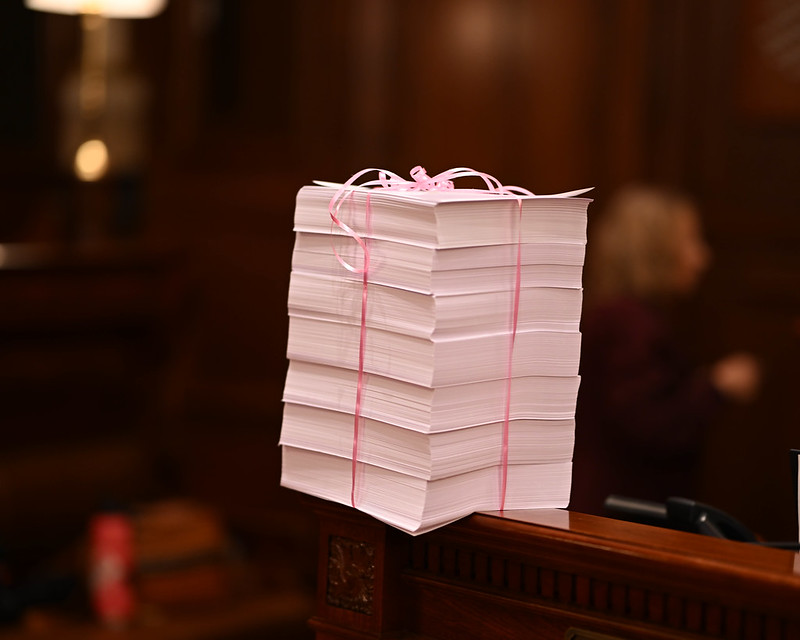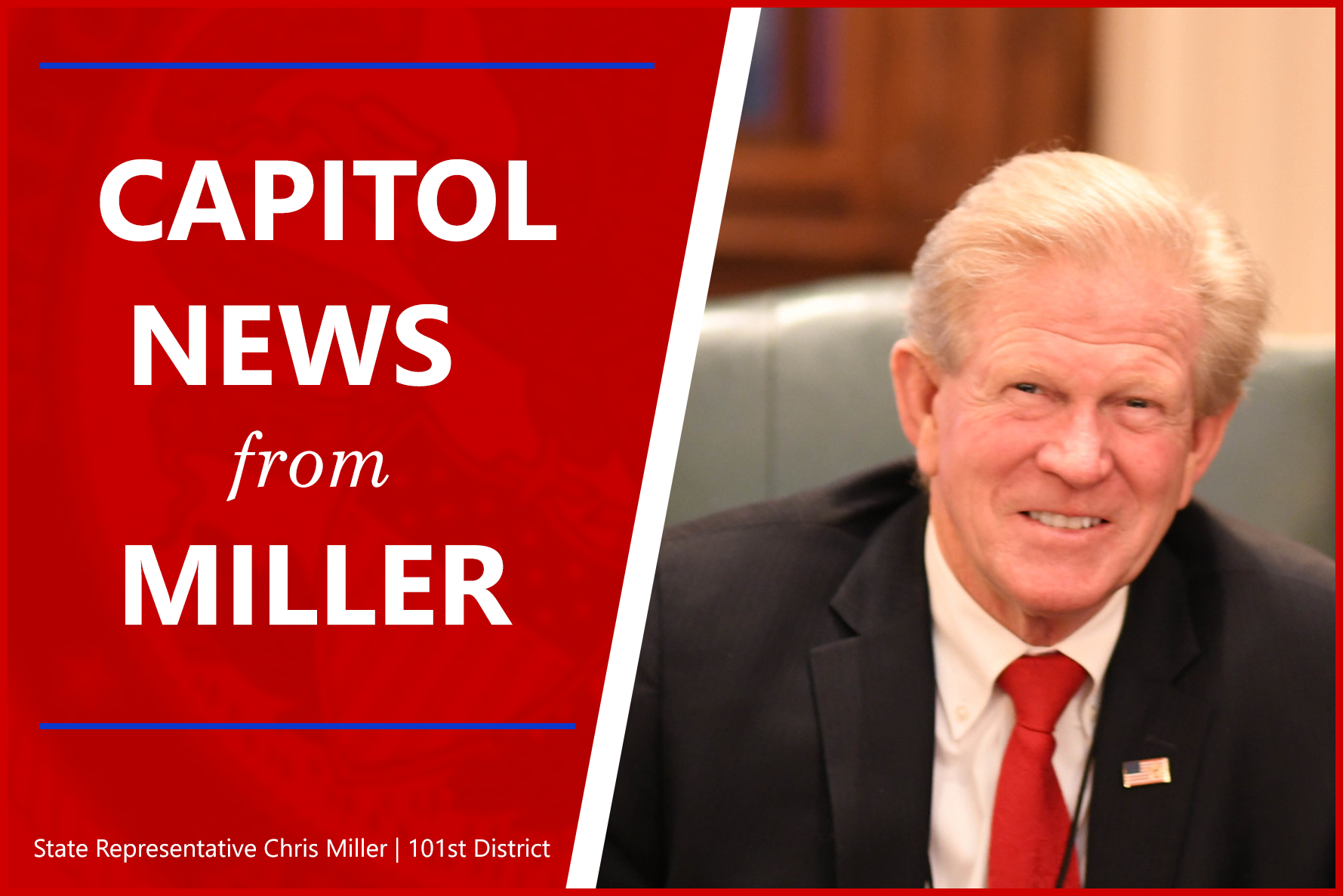CORRUPTION
Madigan corruption trial convenes; jury selection begins. A major criminal trial of former Illinois House Speaker Michael J. Madigan began last week in Chicago.
Madigan faces bribery and racketeering charges.
The former speaker is charged, along with his longtime friend and confidant, Mike McClain.
A 117-page superseding racketeering indictment accuses him of leading what prosecutors call the “Madigan Enterprise,” dedicated to enriching himself and his political cronies, while also maintaining his party in power in Springfield. Both men have pleaded not guilty.
The federal trial has commenced with an extensive questioning procedure to select jurors for the trial. The Madigan trial is expected to receive extensive media coverage and to go well into December. Potential jurors are being asked:
- Whether they feel like there’s an issue with the political system in Illinois;
- Whether they feel that lobbying is a bad thing; and
- Whether they feel politicians shouldn’t mix business and politics.
Legal observers believe that evidence will be presented that will dig significantly into issues related to the perceived intermingling of money, power, and political clout in Chicago and Springfield.
CHICAGO
Chicago Mayor Brandon Johnson names all new CPS school board after mass resignations. Mayor Brandon Johnson announced six proposed appointees to the Chicago Board of Education on Monday following uproar over last week’s announcement that the entire board was resigning.
During a fiery news conference, Johnson rejected calls to pause the appointment process and shot back at criticism that he has been heavy-handed in his handling of Chicago Public Schools. […]
The stunning resignation announcement of all board members — that drew concern from city and state officials — was preceded by months of strife between Johnson, the teachers’ union and CPS Chief Executive Pedro Martinez over how to address the school system’s financial shortfall.
CPS doesn’t have money to pay a $175 million pension payment for non-teacher school staff or for new collective bargaining agreements for the CTU and the new principals’ union, both still in negotiations.
The CTU has asked for salary raises and more staffing to help unhoused, disabled and migrant students. Johnson’s administration has pushed a short-term, high-interest loan to cover the pension payment and first year of the contracts — an idea rejected by Martinez and the board that is stepping down — and wants to aggressively lobby state lawmakers for more funding.
Martinez and district leaders have instead privately floated furloughs, layoffs and other cost-saving measures for the coming months.
Johnson and the CTU — the mayor’s former employer that helped vault him into office — pushed for Martinez to be fired or resign, but the school board has the final say over the CEO’s contract. The old board also had problems with Martinez, but sources said multiple factors played into the resignations: some board members grew tired of the position they were put in, and Johnson desired a change.
In a scathing editorial published on Tuesday, Oct. 8, the National Review accused Johnson of giving away the store to the Chicago Teachers Union. The editorial stated, in part:
“The CTU has been preparing for years to renegotiate its contract with the city, and as part of the preparations, last year it funded the mayoral campaign of one of its own paid lobbyists and organizers, Cook County commissioner Brandon Johnson. Johnson won the narrowest victory in Chicago history and has proceeded to govern strictly for the union’s benefit. The CTU’s demands contemplate, among other things, Chicago Public Schools assuming $150 million of pension-debt obligations for non-teachers in the CPS system — at a time when the system already has an unprecedented half-billion-dollar budget shortfall. When Chicago Public Schools CEO Pedro Martinez refused to sign off on a $300 million high-interest loan that the CTU (and Mayor Johnson) wanted him to take out to fund these new demands, Johnson began publicly pressuring his own school-board members to fire him.
“Instead, the entire seven-person membership of the city’s Board of Education — personally selected by Johnson when he began his term in office — resigned as a group rather than accede to the unacceptable pressure. Johnson announced a replacement slate of school-board appointees on Monday morning, seven people presumably selected for their greater responsiveness to the mayor’s demands. The new board is almost certain to vote to fire Martinez, allowing Johnson to replace him with an appointee who will rubber-stamp the union’s demands. The Chicago Teachers Union looks likely to win everything it is asking for, which is precisely why its members elected one of their own as mayor.”
BUDGET
Illinois will issue up to $1.7 billion of GO bonds this month. Illinois will sell up to $1.1 billion of general obligation refunding bonds and $600 million of taxable and tax-exempt new money General Obligation (GO) bonds by the middle of October.
“General obligation” bonds are debt that explicitly references the full faith and credit of the State of Illinois and its taxpayers. The rollover issue of $1,087,800,000 in general obligation (GO) debt, and the separate new issue of $600,000,000 in new debt, will be sold in New York City on or about October 16, 2024.

The overall fiscal plan developed by Gov. Pritzker’s Governor’s Office of Management and Budget (GOMB) encompasses approximately $600 million in taxable and non-taxable new GO debt. These are new debts that represent an additional debt load being imposed upon Illinois taxpayers. Even if global interest rates drop over the next 5 to 10 years, Illinois will not be able to pay off many of these new bonds ahead of time. As part of the legal covenant attached to this $600 million loan, the State of Illinois will sign a binding pledge, with the sale, that it will not refund any new debt until October 1, 2033, at the earliest. This means that Illinois taxpayers are about to make a binding promise to pay interest to the bondholders for at least 9 years.
These two debt issuances create an overall package of almost $1.7 billion in new and rolled-over interest-bearing obligations of the State and its taxpayers. While Illinois’ FY25 budget is ostensibly “balanced,” as is required by the Constitution, Illinois continues to roll over its existing debts and to borrow net new money. Although Illinois tax rates are significantly higher than the taxes imposed by most U.S. states, the revenue these taxes bring in is not enough to meet overall State spending obligations.
